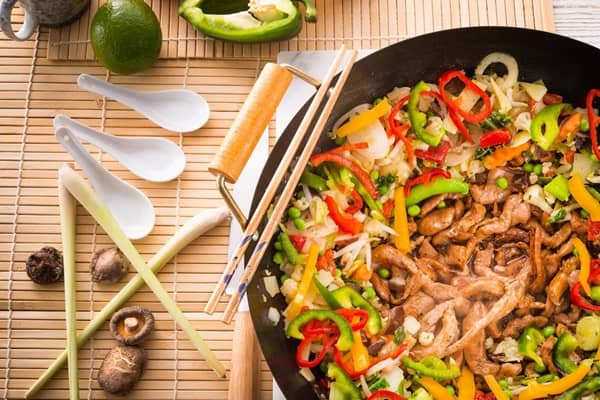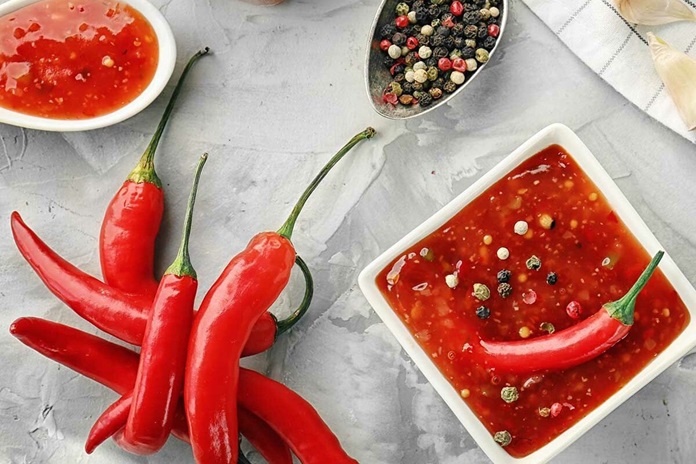January 16 is celebrated as International Hot and Spicy Food Day. The day people where people get to celebrate and eat some spiciest dishes in the world. Several countries have different cooking styles and recipes. Some nations eat mild food whereas others enjoy hot food dishes which make you gulp down a jug of water. There are several spicy dishes available that people are not afraid to consume. Know the history and some of the interesting facts about International Hot and Spicy Food Day through this article.
History of International Hot and Spicy Food Day
Hot and spices have been consumed for over 6000 years to add flavour to a dish and for their many health benefits. For example, spices can fight inflammation and have healing properties. Due to these reasons, spices have grown popular since ancient times.
Since spices and herbs played a role in medical science, ancient Greeks imported Eastern spices such as pepper, cassia, cinnamon, and ginger to the Mediterranean. Similarly. according to some sources indicates that around 460 to 377 B.C. Hippocrates wrote of herbs and spices such as saffron, cinnamon, thyme, coriander, mint, and marjoram.
Moreover, in the period 372 B.C. and 287 B.C., the “Father of Botany,” as Theophrastus was known, in his two books, wrote about 600 spices and herbs.
Similarly, Romans found additional use of spices, adding them to spice-flavoured wines and spice-scented balms and oils. Due to spices’ healing properties, they were also used in poultices and healing plasters.

Curcumin, for instance, was a staple in Ayurvedic medicine to treat conditions like arthritis, autoimmune disorders, headaches, and nausea.
Furthermore, Capsaicin which is an active component of chilli peppers, is known to destroy or reduce cancer cells. Similarly, the research conducted in 2015 U.S. and China found that consuming spicy food six or seven days a week lowered mortality rates by 14%.
So yes, if you have never been a fan of spicy food, it is about time you change your diet. Trust us it’s a decision you’ll appreciate for the rest of your life.
Also read, National Walker’s Shortbread Day – January 6, 2025
Timeline of International Hot and Spicy Food Day
| 400 B.C. (Spicy Beginnings) | Chillies are part of agriculture. |
| 1st–2nd (Century Heal the World) | The use of spices and herbs as medicines and healing tonics begins. |
| 8th (Century Sowing the Seeds) | Cardamom and turmeric are in the gardens of Babylon. |
| 17th (Century Mixing it Up) | Spices are part of religious offerings, burial rituals, medicines, trade, and seasoning. |
Five Interesting Facts About Spicy Food
- Spicy is Not a Taste: We often describe spicy food as having a “taste,” but it is technically not one of the five basic tastes (sweet, salty, sour, bitter, and umami). Spiciness is a sensation of pain caused by capsaicin which is the active compound in chili peppers. This compound triggers pain receptors in the mouth which results in the perception of heat and discomfort, which is why spicy foods can feel intense even though they are not harmful.
- Cultural Development of Spice Preferences: The preference for spicy foods in some cultures has changed as a practical solution to food preservation. Spices contain antimicrobial properties which can restrain the growth of bacteria, which makes them particularly valuable in warmer climates where food spoils more quickly. This historical need has shaped culinary traditions which led to a wide range of use of spices in places like India and Southeast Asia.
- Health Benefits Beyond Flavor: Spicy foods are not just tasty but they also offer several health benefits. For example, capsaicin has been associated with increased metabolism, appetite suppression, and improved cardiovascular health. Similarly, some studies indicate that consuming spicy food daily helps to reduce mortality rates, potentially contributing to a longer life.
- Boosting the Gut Microbiome: Consuming spicy foods benefits the gut health by promoting a diverse microbiome. Capsaicin aids in stimulating healthy gut flora which is significant for overall digestive health. A balanced gut microbiome is associated with enhanced immune function and improved digestion.
- Increasing Heat Tolerance: Regular exposure to capsaicin can increase ability to handle the heat, allowing spice fans to enjoy hotter dishes with less discomfort. This adaptation is occurs as the body becoming accustomed to the pain signals triggered by spicy compounds.
Conclusion
International Hot and Spicy Food Day, observed on Jan 16, celebrates our enduring passion for spices food. With a long history of over 6000 years, this day not only showcases the diverse culinary traditions that add spices but also emphasizes their significant health benefits. Spices have been integral to cultures worldwide, enhancing flavors while also offering medicinal properties that promote overall well-being.
This day invites people to explore and taste several spicy foods, fostering a sense of community through shared meals and culinary experimentation. From fiery Indian curries to zesty Mexican salsas, the availability of a range of dishes allows for a rich exploration of flavours and cultural heritage.
As we enjoy the heat and excitement of spicy foods, It is also a good chance to recognize the important history and culture of spices in our meals. International Hot and Spicy Food Day invites everyone to savour the strong flavours and health perks that come with adding some spice to our food.
Frequently Ask Question
Why is spicy food popular in hot countries?
Spicy food is popular in hot climates as it contains antibacterial properties, which can help preserve food and enhance flavours.
Which country is known for its love of spicy food?
Mexico is renowned for its spicy cuisine, featuring a wide range of chilli peppers and flavorful cuisines.
How can I celebrate International Hot and Spicy Food Day?
You can celebrate by visiting a Mexican or Indian restaurant, cooking a spicy dish at home, or organizing a chilli-eating contest.
What are the health benefits of spicy food?
Spicy foods help improve the immune system, aid digestion, and may have anti-inflammatory properties.
What is capsaicin?
Capsaicin is the active compound in chilli peppers which is known for its heat and potential health benefits, including cancer cell destruction.
How long has spicy food been consumed?
Spices have been used for over 6,000 years. It is not only used for flavouring but also for its health benefits.
You may also like to read, National Cassoulet Day – January 9, 2025
